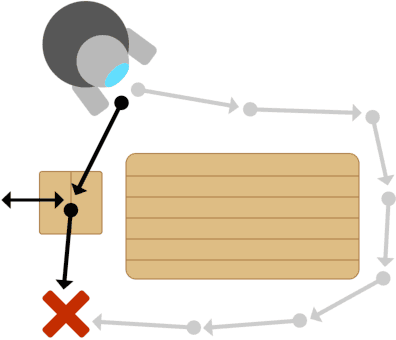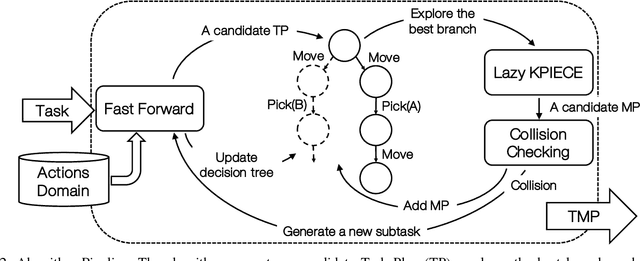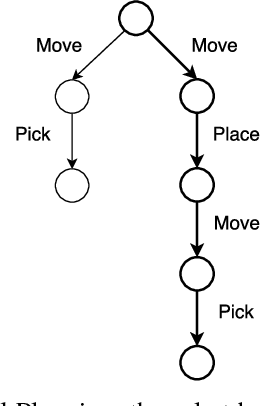Conditional Task and Motion Planning through an Effort-based Approach
Paper and Code
Apr 18, 2018



This paper proposes a preliminary work on a Conditional Task and Motion Planning algorithm able to find a plan that minimizes robot efforts while solving assigned tasks. Unlike most of the existing approaches that replan a path only when it becomes unfeasible (e.g., no collision-free paths exist), the proposed algorithm takes into consideration a replanning procedure whenever an effort-saving is possible. The effort is here considered as the execution time, but it is extensible to the robot energy consumption. The computed plan is both conditional and dynamically adaptable to the unexpected environmental changes. Based on the theoretical analysis of the algorithm, authors expect their proposal to be complete and scalable. In progress experiments aim to prove this investigation.
 Add to Chrome
Add to Chrome Add to Firefox
Add to Firefox Add to Edge
Add to Edge